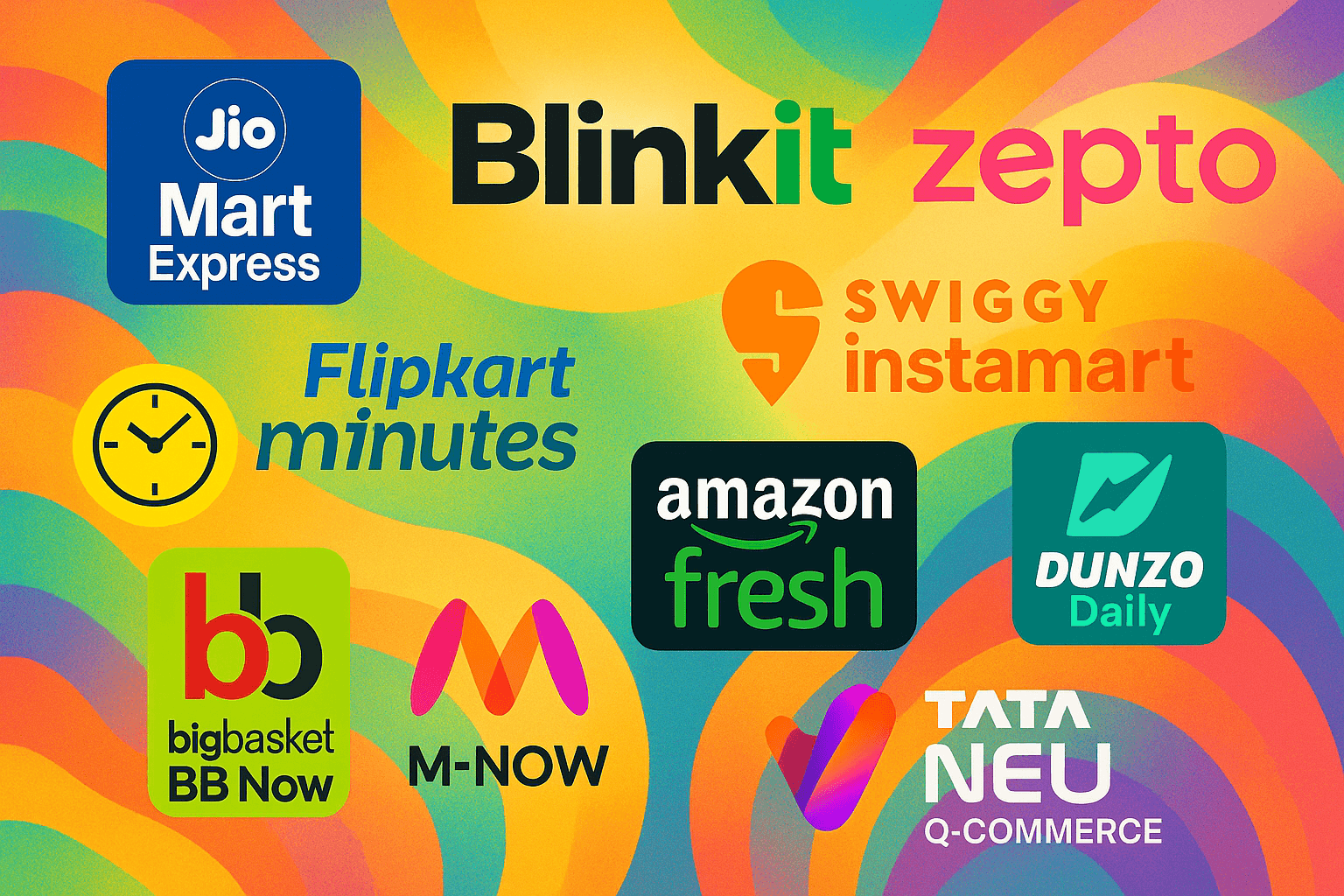Understanding Quick Commerce in India
From 2023, we started seeing the rise of quick commerce in India, and the shopping trends started shifting from traditional long-duration delivery to quick 10-minute delivery for daily needs like groceries, fruits and vegetables. The quick commerce (q-commerce) emerged as an evolution of e-commerce with 10-30 minutes quick deliveries by leveraging dark stores and micro-warehouses. Q-commerce is now an integral part of urban households of metro cities like Ahmedabad, Delhi-NCR, Bengaluru, Hyderabad and Mumbai.
Market Size and Growth
The Indian quick commerce market is estimated to be around ₹64,000 crore ($7.7 billion) for the financial year 2025 projections and is expected to reach around ₹1,10,658 crore ($12.6 billion) by 2030, growing at an 18.9% CAGR. According to Straits Research, India is the fastest-growing Q-commerce market globally, expanding at a rate of 17% annually, which forecasts a huge market potential for current established and newly emerging quick commerce platforms.
Key Growth Drivers
- Urban fast-paced lifestyles demand instant delivery convenience.
- High smartphone penetration (77%), with affordable internet connections and digital payment adoption.
- Expansion of dark stores and micro-warehouses infrastructure with strategic placements.
- Investor confidence from international financial and technological firms like SoftBank, Temasek, and Tencent.
Top 10 Quick Commerce Companies in India (2025)
Blinkit (Owned by Zomato)
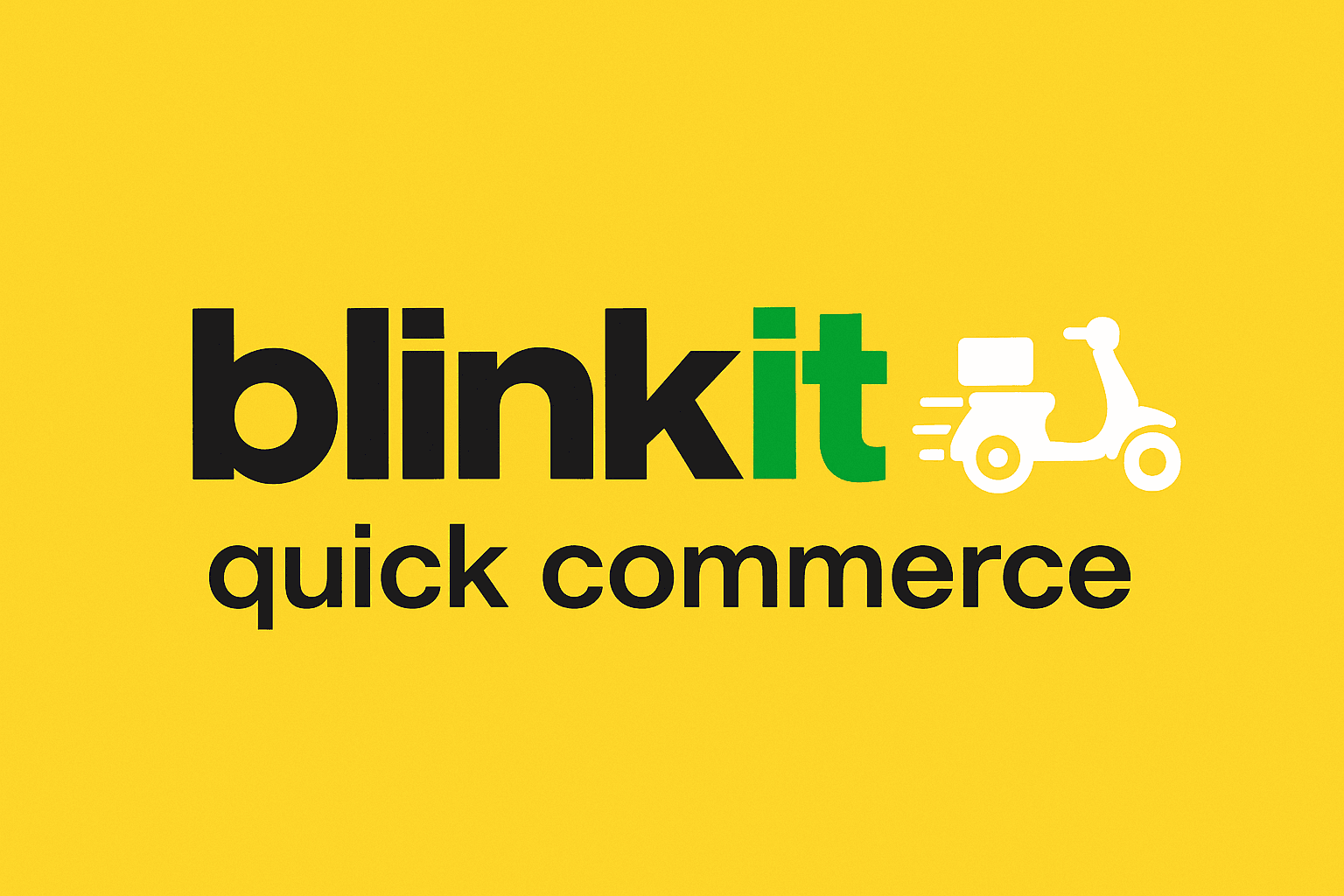
Blinkit leads the quick commerce space in India, with a market share of ~45% as of the financial year 2025. Its supply chain is centred around dense, AI-driven urban dark stores enabling 10-20-minute delivery across 30+ cities. Backed by Zomato, Blinkit integrates food and grocery logistics for unmatched speed and scalability.
Highlights:
- Average 4.6 / 5 stars from 38.8 Lacs (3.8 Million) reviews (Based on Blinkit Google Playstore)
- Strong supply chain infrastructure
- Delivery within 10–20 minutes
- A diverse and huge product range, from groceries to electronics
- Promotional offers, referral bonuses and discount coupon codes.
Zepto
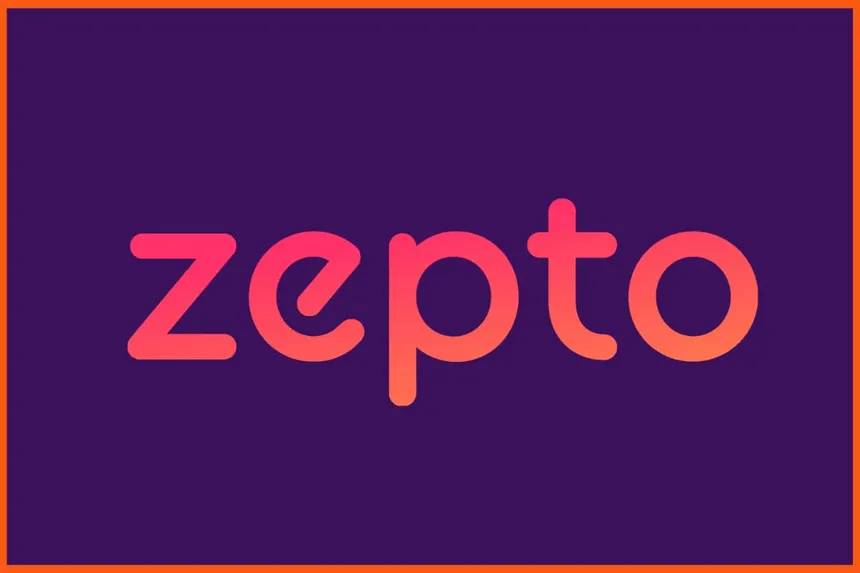
Zepto is India’s youngest yet fastest-growing Q-commerce startup, commanding ~28% of the market. With precision-placed dark stores, micro-warehouses and data-driven demand forecasting, Zepto ensures consistent 10-minute deliveries across major metro cities like Delhi NCR, Mumbai, Ahmedabad, Bengaluru, Hyderabad and Chennai.
Highlights:
- Average 4.7 / 5 stars from 38.7 Lacs (3.8 Million) reviews (Based on Zepto Google Playstore)
- Data-based warehouse strategic optimisation and placement.
- Focused more on daily essentials and FMCG products.
- High customer satisfaction due to reliability and faster delivery.
Swiggy Instamart
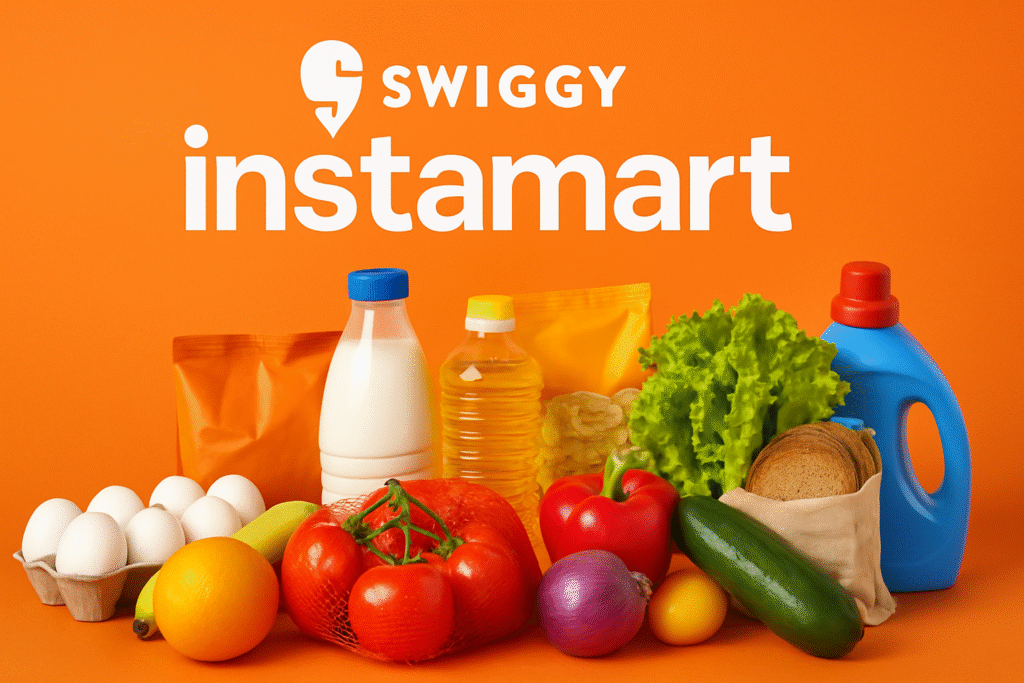
Swiggy Instamart holds around ~25% market share, offering ultra-fast delivery of groceries, electronics, and essentials within 15 minutes. Leveraging Swiggy’s vast delivery partner network, the brand continues to expand aggressively beyond Tier-1 cities like Delhi NCR, Bangalore and Hyderabad.
Highlights:
- Average 4.6 / 5 stars from 3.34 Lacs (0.3 Million) reviews (Based on Instamart Google Playstore)
- Huge ecosystem of delivery partners.
- Competitive platform offers, great mobile app UX and quick refunds.
- Integrated customer experience with the Swiggy Food delivery app.
Flipkart Minutes
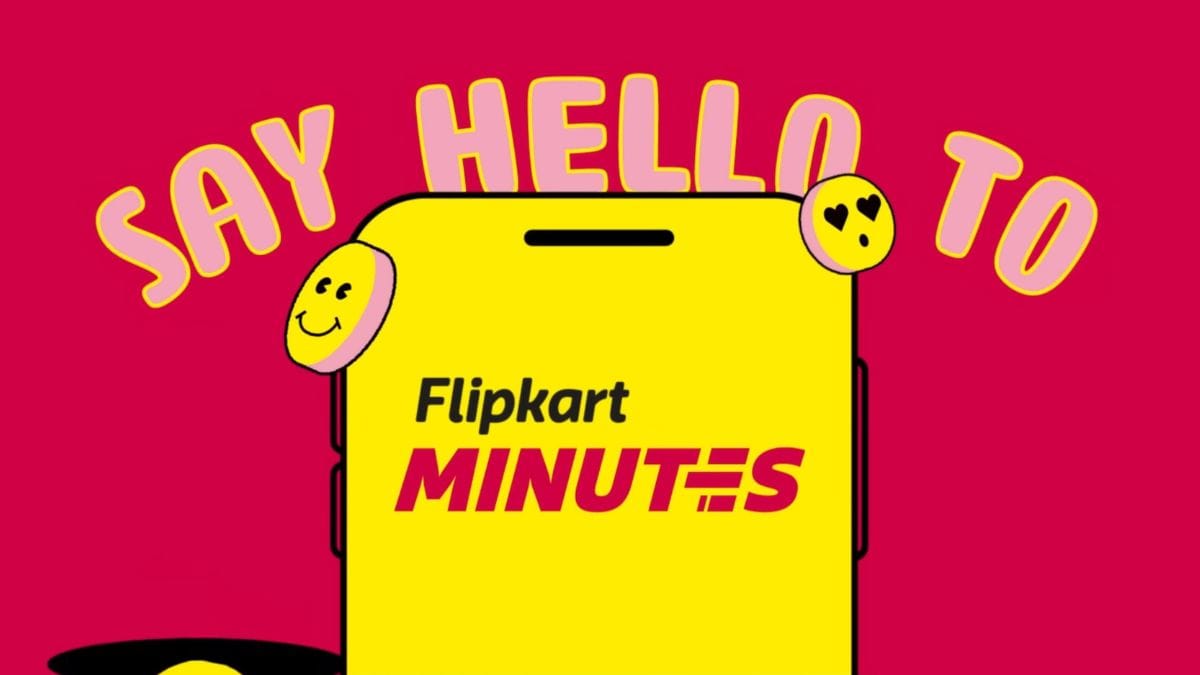
Flipkart, owned by Walmart, introduced Flipkart Minutes, targeting Blinkit and Zepto directly. It promises delivery in 10–15 minutes, with groceries, house essentials, and small electronics as key focuses, and is powered by its extensive logistics network.
Highlights:
- Average 4.3 / 5 stars from 6.84 Crore (60.8 Million) reviews (Based on Flipkart Google Playstore)
- A large and well-established logistics network of Flipkart.
- Diverse product range and brands.
- Integrated with Flipkart’s existing app with an attractive user interface.
Amazon Fresh (Internal codename “Amazon Tez” / “Amazon Now”)
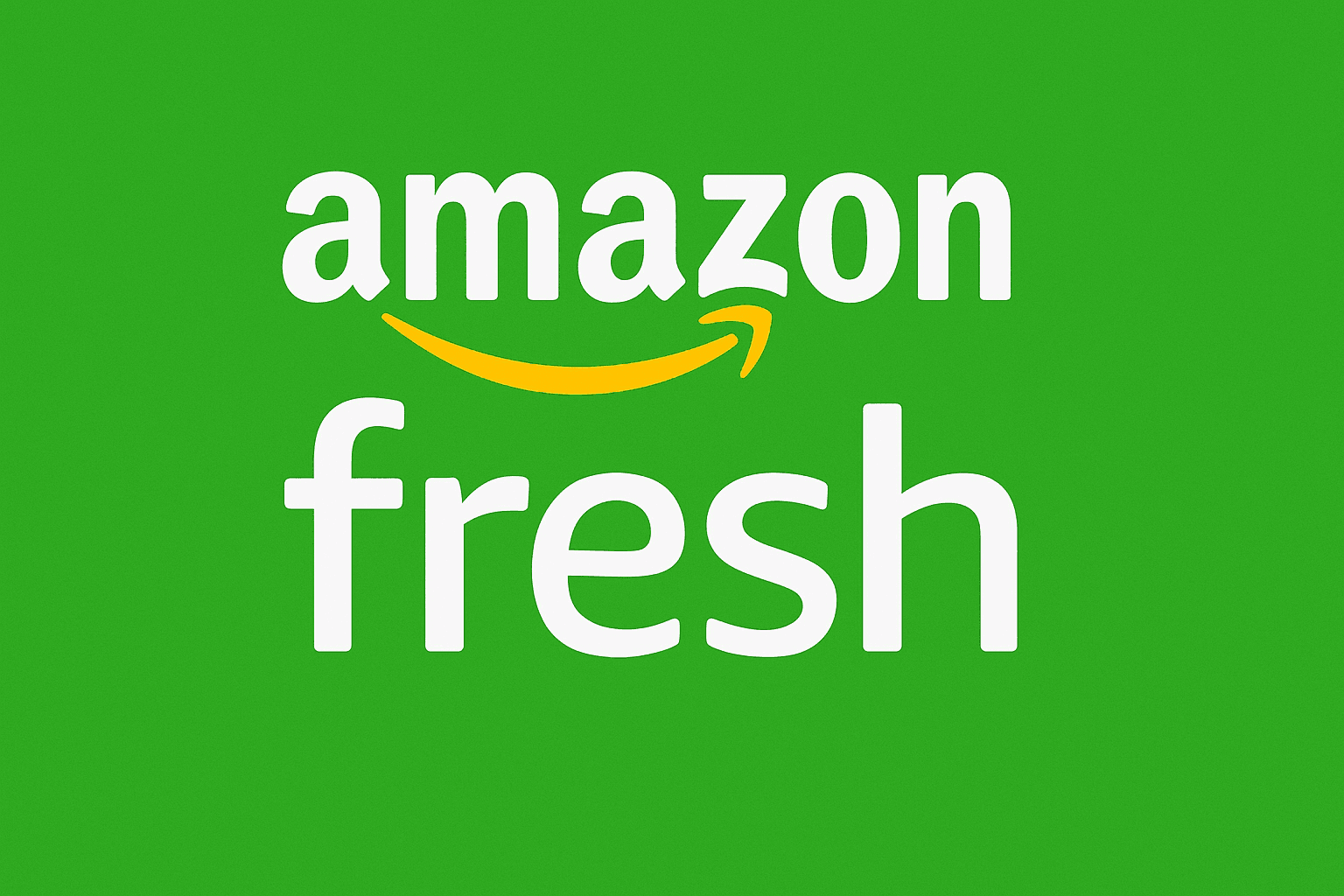
The E-commerce giant Amazon has also started its own quick commerce brand named “Amazon Fresh”, making deliveries within 60-240 minutes. Just like Amazon e-commerce, their q-commerce also provides a wide range of products with various offers and discounts. Although it is not a prominent in the market as others, it is gaining traction day by day, where there is no need for quick 10-15 minutes delivery.
Highlights:
- Average 4.2 / 5 stars from 1.01 Crore (10 Million) reviews.
- Well-established network of logistics and delivery.
- Trust factor of the already existing e-commerce brand reputation.
- Integrated customer experience with Amazon Pay and Prime services.
BigBasket (BB Now by TATA Digital)
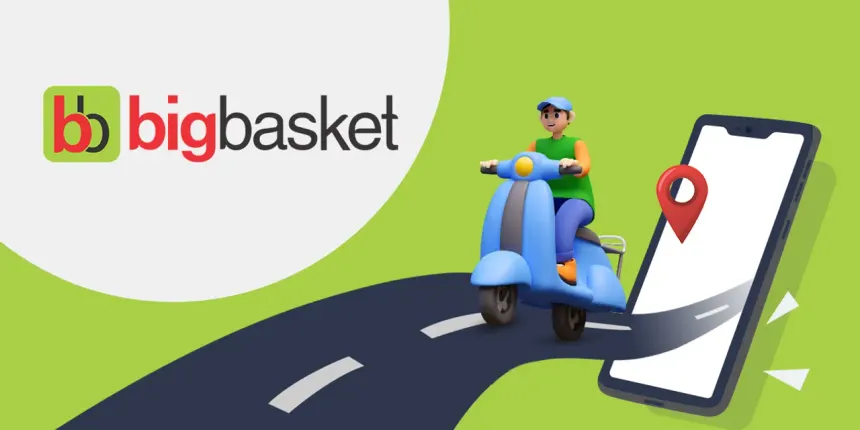
BigBasket (legal name Supermarket Grocery Supplies Pvt Ltd) was founded in 2011, headquartered in Bengaluru, India. It is owned by the Tata group, which acquired a majority stake in 2021 to enter and compete in the quick commerce race. Currently, it is functional in various cities like Delhi, Ahmedabad, Bangalore and Hyderabad. Although it was an early player in the quick commerce domain in India, it is currently lagging behind other competitors.
Highlights:
- Average 4.6 / 5 stars from 17.9 Lacs (~1.8 Million) reviews (Based on Bigbasket Google Playstore)
- Large product assortment (grocery + essentials) and established logistics/warehousing network.
- The backing of the Tata Digital (Tata Group) gives strong financial muscle for expansion.
- Recognised brand in India’s online grocery space, a trust factor for consumers.
Other emerging noteworthy platforms:
Dunzo Daily: Once an early entrant in Q-commerce, Dunzo faced restructuring challenges but continues to serve limited metros with 19-minute delivery through smart fulfilment centres.
JioMart Express: Expanding Reliance Retail’s omnichannel dominance.
M-Now (by Myntra): 30-minute delivery of fashion and beauty items.
Tata Neu Q-Commerce: Integrating quick delivery into Tata Digital’s wide-app ecosystem.
Supply Chain Technology Behind Instant Delivery
The major selling point of a quick commerce platform is its instant delivery.
It is made possible by technological innovation in the field, like real-time analytics and data-based decision making, strategic placements of dark stores and micro-warehouses, and development in store chain infrastructure. By 2027, India’s demand for dark retail space will rise by 56% from 24 million sq. ft (2023) to 37.6 million sq. ft, highlighting the importance of infrastructure and its competitiveness.
Delivery Efficiency and Fulfilment
For quick commerce companies, the promised “10-minute” deliveries must be fulfilled and to achieve this, platforms must optimise for their delivery efficiency. More than 40% of the orders are getting fulfilled by their dark stores or micro-warehouses, which are placed strategically to cover high-demand areas for near instant deliveries.
Real-time Data Analytics
Quick commerce companies are relying on real-time data processing to predict surges in demand and to restock inventory. Data analytics also helps them process orders, manage inventory and find optimal delivery routes to ensure high serviceability even in peak hours.
Role of Delivery Partners
For quick commerce companies, one of the major success factors is their “Delivery fleet”. Currently, there are ~3.25 lacs employees working as delivery partners or in warehouse management. According to projections, it is expected to increase by 53% to around 5 lakh jobs in quick commerce, which is quite substantial for this booming industry.
Challenges for Quick Commerce Companies
Despite the boom in the market, the Q-commerce companies face:
- High operational and fuel costs per order
- Workforce volatility and attrition among delivery partners
- Margin compression due to frequent platform offers and high competition
- High infrastructure strain in Tier-2 cities
Companies are addressing these through supply chain management using Artificial Intelligence (AI), route-level optimisation, Real-time data-driven Inventory Management and last-mile automation.
Summary Table: Top Quick Commerce Companies In India
| Rank | Company | Delivery Time | Primary Category | Market Share (FY2025) |
|---|---|---|---|---|
| 1 | Blinkit (Zomato) | 10–15 minutes | Groceries, Essentials | ~45-46% |
| 2 | Zepto | 10 minutes | Groceries, FMCG | ~28% |
| 3 | Swiggy Instamart | 10–20 minutes | Groceries, Daily Needs | ~23-25% |
| 4 | Flipkart Minutes | 15–20 minutes | Groceries, Electronics | < 1% |
| 5 | Amazon Fresh | 60–240 minutes | Groceries | < 1% |
| 6 | Dunzo Daily | ~20 minutes | Fruits, Meat, Essentials | NA |
| 7 | BigBasket BB Now | 10-15 minutes | Groceries | <1% |
| 8 | JioMart Express | ~15-20 minutes | Groceries, FMCG | <1% |
Conclusion
Indian quick commerce companies have swiftly changed India’s retail ecosystem, raising the bar for speed, convenience, and service. Their offering of essentials delivered in minutes changed consumer expectations, provided a catalyst for tremendous growth, and inspired intense rivalry among leading players, including Blinkit, Swiggy Instamart, and Zepto. As the shifts to urbanisation and smartphone adoption continue and operational models advance towards efficiency and sustainability, quick commerce will remain a central player in India’s digital commerce revolution – a source of innovation and a vibrant blueprint for markets everywhere.
Frequently Asked Questions (FAQs)
What are quick commerce companies in India?
Quick commerce companies in India are platforms that deliver groceries, essentials, and daily needs within 10–30 minutes. Examples include Zepto, Blinkit, Swiggy Instamart, Dunzo Daily, and Amazon Fresh.
Which is the fastest quick commerce company in India?
Zepto and Blinkit are considered among the fastest, offering deliveries within 10 minutes across major metro cities such as Delhi NCR, Mumbai, Ahmedabad and Bangalore.
How do quick commerce companies ensure instant delivery?
They use micro-warehouses (“dark stores”) strategically placed near high-demand zones, advanced routing algorithms, and large networks of delivery partners to minimise delivery time.
What challenges do quick commerce companies face in India?
Profit margins, logistical costs, workforce management, and supply chain optimisation are the biggest hurdles in maintaining sustainable instant delivery services.
What is the market size of quick commerce in India?
As of 2025, India’s quick commerce market is estimated to be around ₹64,000 crore or $7.7 billion, with rapid growth driven by increased urbanisation, digital adoption, and demand for convenience.
How do quick commerce companies differ from traditional e-commerce companies?
Traditional e-commerce delivers in 1–3 days, while quick commerce focuses on instant gratification, delivering within minutes using local fulfilment centres.
What qualifies as a “quick commerce company in India”?
A company fulfilling everyday essentials within minutes (typically 10–30 minutes) via a dense network of micro-warehouses and delivery partners.
Which company has the largest market share in India’s quick commerce sector?
According to multiple recent reports, Blinkit holds approximately. 44-46% share in FY25.
What is quick commerce in India?
Quick commerce refers to ultra-fast delivery of products, usually within 10–30 minutes, made possible through hyperlocal networks and dark store optimisation.
What are dark stores in quick commerce companies?
Dark stores are small warehouses located within city zones used exclusively for storing and dispatching orders quickly to nearby customers.


